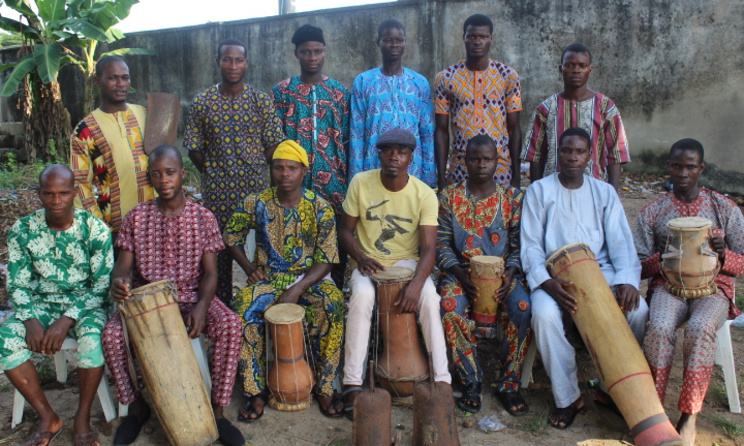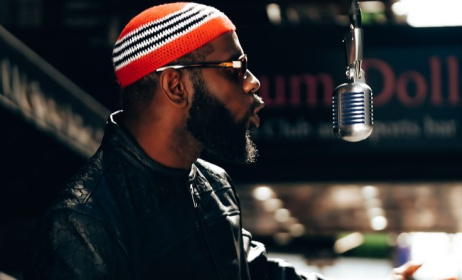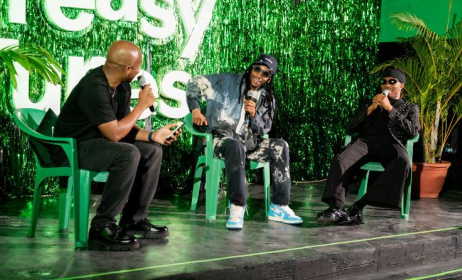Jo Kunnuji Experiment, Gogoke Band preserve indigenous Ogu music on Avale
The Jo Kunnuji Experiment represents the fusion of indigenous African music and Western jazz. Through the lens of the Nigerian-helmed collective, we see a redefinition of both cultural exchange and long-established sonic templates. Drawing attention to the political nature of art and advocating for the appreciation of Africa’s traditional sounds, the ensemble joined forces with the Badagry-based Gogoke Band to create a body of work titled Avale.
 Gogoke Band.
Gogoke Band.
“The story of our music being marginalised is actually the story of Africa as a whole,” Jo Kunnuji says. “It's a microcosm of the global capitalist economy. This is my life's work because nobody has done this with indigenous Badagry music before.”
The ‘this’ involves the Jo Kunnuji Experiment – a multicultural, cosmopolitan ensemble fusing indigenous instrumentation and playing styles into contemporary jazz while adding elements of soul and gospel. While completing a doctoral thesis based on ethnographic musicology at the University of Cape Town, the bandleader came across the Gogoke Band (of Igbogbele, Lagos) during his fieldwork. This grew from a research interest into an artistic voyage.
“We recorded in Badagry, Cape Town and Johannesburg,” he says, “and incredibly Gogoke’s hand in the album took only two days”.
The Jo Kunnuji Experiment has members from Nigeria, the US, Congo and South Africa, which makes Avale a real meeting of cultures. The album aims to portray the band’s African pride and communal ethos, with the Thandeka Dladla-featuring single 'Adura Fun Afrika', which is characterised by a South African soul feel without decentering the sounds of West Africa.
“It still takes on traditional elements, like the time feel and partly the language, so more people will relate,” Kunnuji says of the song’s linguistic basis. “I know people might listen to the music and not understand what I'm saying so the conscious step I'm taking is to write more verses in English – like on 'Pentho'."
There’s something alluring about the combination of the familiar notational standards of modern jazz and the fusion of polyrhythmic turns, percussive undertones, syncopated instrumentation and the enchanting vocals of indigenous Ogu music.
Assessing how Ogu underpins Avale, Kunnuji reveals its influence of the album: “The chanting is between speech and singing and pays homage to the icons that have come before – Badagry bands still do this to this day. The bell pattern is also the most important part of the music and the cowbell is usually the instrument that comes in first.”
This is highlighted most on album closer 'Awa Dagbe', which characterises the album and contains one of Rick Deja's strong saxophone solos. Thematically speaking, Kunnuji says there’s a lot of praise on the album. “It’s somewhat mystical, religious and continues the tradition of thanking your patrons. It’s really about brotherhood, acknowledging people and African pride.”
This album opens new doors for the musical conversation between our traditional music and the Western influences we’re exposed it. Without being suspicious, Avale shows us how much our roots still hold us in place, even while we accommodate the practices of our neighbours.
“Avale is a celebration of unsung skilled musicians who are in the periphery due to our marginalisation. So this isn't just music for the feet … our music should make a statement and people should engage with the sound and the content,” Kunnuji says.
Listen to Avale on Appe Music.



























Comments
Log in or register to post comments